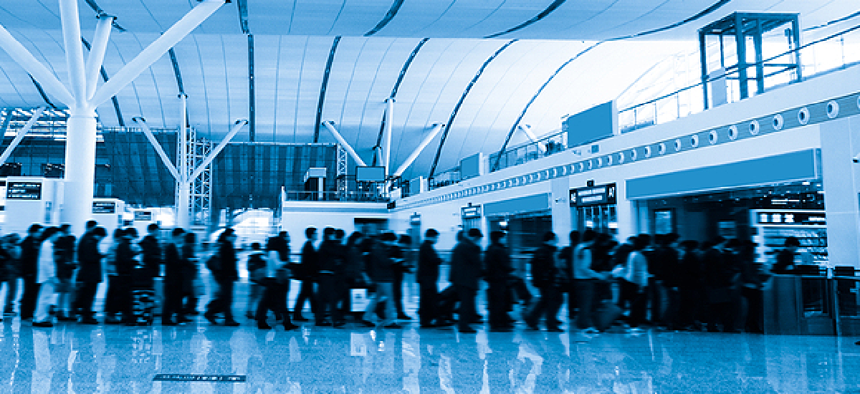AI could speed transit security scan times


Connecting state and local government leaders
Evolv Technology is testing its system that speeds scanning by applying artificial intelligence and machine learning.
A new system for full-body scanning of mass-transit passengers is about to start public testing in three cities across the country. The Evolv Technology security scanner is much quicker than the devices commonly used in airports thanks to artificial intelligence and machine learning.
“The system uses solid state micro-antennas to steer radar beams over anyone walking through the gate, and to pick up the reflections,” The Guardian reported. “That data is then fed to an AI system that has been trained to spot distinctive scattering patterns from all kinds of objects, including firearms, suicide bomber vests and even knives. The scanner also has a camera that takes a photo of each person passing through, enabling facial recognition.”
The technology will be piloted in Union Station in Washington, D.C., in Los Angeles’s Union Station metro and at the Denver International Airport, according to The Guardian, which first reported on Evolv’s scanner.
The Transportation Security Administration is working through public/private partnerships to identify “innovative and emerging capabilities to enhance aviation security,” agency officials said.
Although Denver International Airport is in the process of finalizing a pilot project with Evolv, “at this time, TSA is not considering this technology for airport checkpoints, as it does not presently meet our stringent security standards,” the agency said.
Line-induced headaches at airports reached a crescendo earlier this year when travelers from coast-to-coast experienced long security lines on Memorial Day weekend. The lines were blamed on budget cuts within TSA and management challenges within the organization. TSA has tried to address wait times by hiring more officers, expanding TSA Pre Check and working with airlines to find innovative solutions.
These new solutions have included Delta creating “innovation lanes” at the Atlanta airport to automate bin return and the TSA working with American Airlines to bring computed tomography technology to the screening process. CT scans are currently used only on checked luggage, but the TSA said that using the technology to screen carry-on luggage could allow passengers to leave liquids and aerosols in their bags, which would improve the screening speed.




